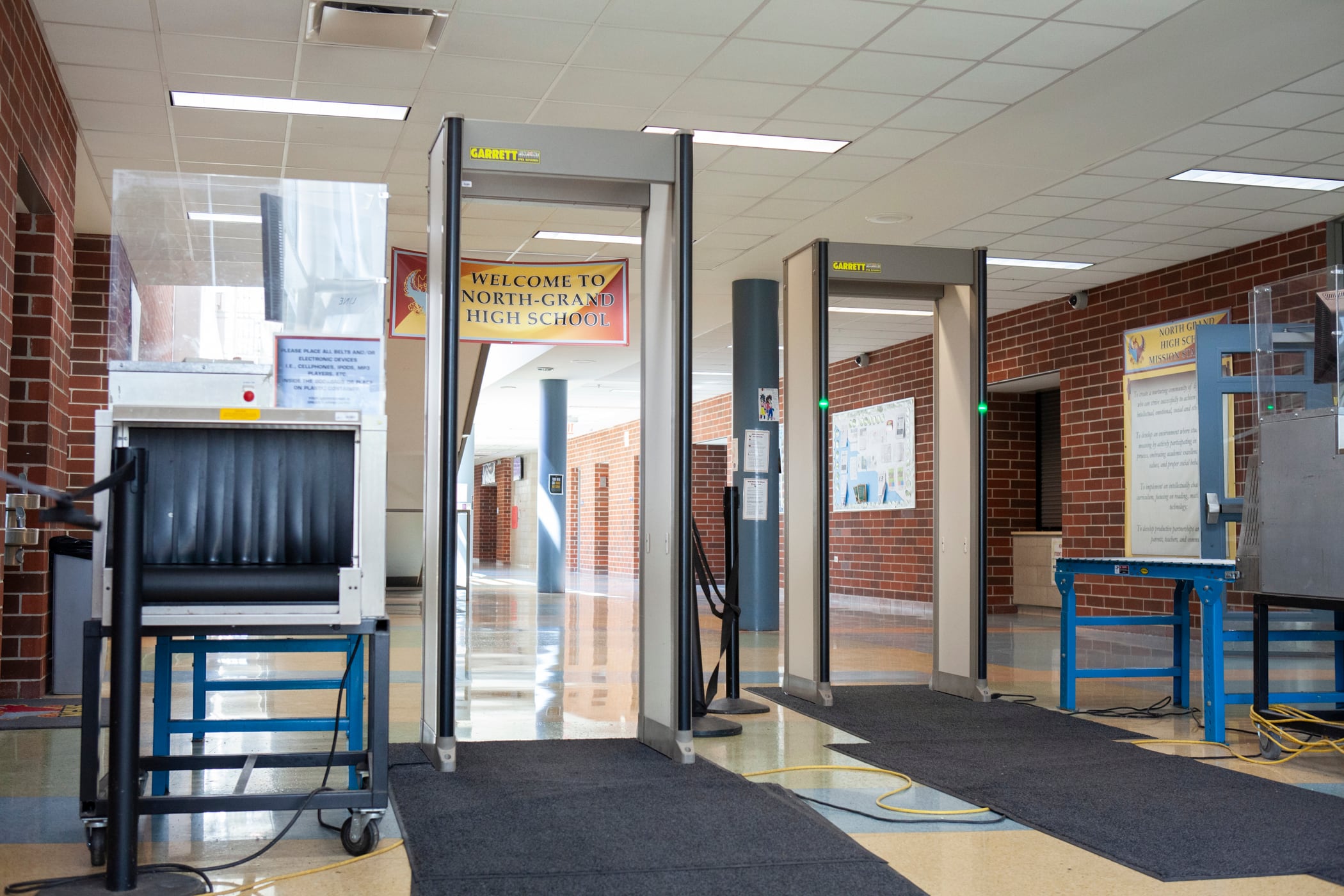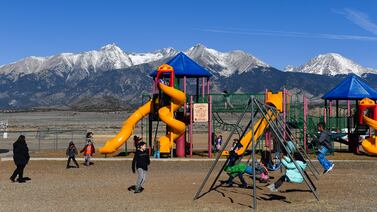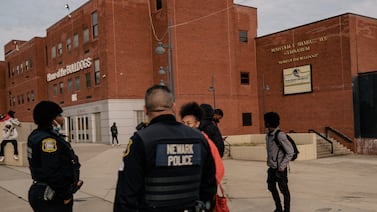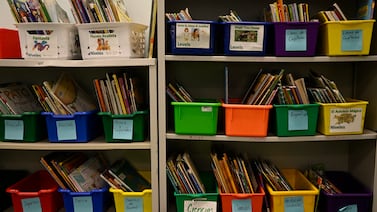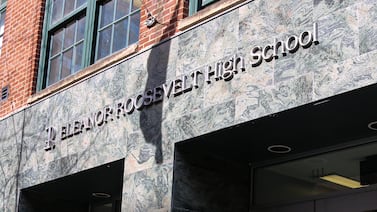Philadelphia’s sixth through eighth grade students will be subject to periodic weapons screenings starting on Monday, the school district announced Thursday in a letter to parents. The screenings will take place at six schools a day. They will be conducted at every middle school, as well as elementary schools with middle school grades, at least once before the end of the school year.
The district said it is implementing the new security measures due to an increase in gun violence and weapons found at elementary and middle schools. For example, Channel 6ABC reported that a gun was found inside a student’s backpack at Juniata Park Academy in North Philadelphia last month. Children in Philadelphia make up an increasing number of gun violence victims and perpetrators — a crisis city and school officials have struggled to address during the pandemic.
“What our kids are being exposed to, what our leadership is being exposed to, is not normal. We have allowed this to get normalized in our space. That is not acceptable,” said Kevin Bethel, chief of safety for Philadelphia schools, during a discussion of youth and gun violence hosted by Chalkbeat last month.
But some parents and teachers worry that using metal detectors and similar approaches at schools won’t make them safer, and could send the wrong message to students.
Screenings will be conducted by a team of school safety personnel, who will use hand wands or metal detectors to search for weapons. The screenings will take place in the morning, typically in a school’s entryway.
Students will be given the chance to discard any weapons prior to being screened without consequences. Those who choose not to participate in the screening will be referred to the school’s leadership. Any weapon found during the screening process will be confiscated and not returned.
The district defines the following as weapons: firearms, pellet or BB guns, knives, cutting tools, nunchaku, brass knuckles, electric shock devices, or mace or any other tool or object used to inflict serious bodily injury. Any student in possession of a firearm will be detained and referred to the Philadelphia Police Department.
“The district understands that the level of screening may feel intrusive and inconvenient. The Office of School Safety is committed to implementing this process with transparency and sensitivity towards the various and unique, social, developmental and societal factors. School safety personnel will treat every individual fairly and with dignity,” the letter to parents stated.
Two years ago, Philadelphia’s Board of Education voted to put metal detectors in all of the city’s high schools, despite a public outcry. The new policy will affect 71 schools. Bethel did not respond to a request for comment from Chalkbeat on Friday about the new security screenings.
Asked about the concern that security lines caused by the screenings might make students late for class, district spokesperson Monica Lewis said, “We encourage students to arrive at school in a timely manner that allows for them to be ready to start the school day.”
District parent Meredith Weber argued there is no evidence that physically searching children, and other similarly restrictive physical measures, improve school or community safety.
“There is however evidence that these types of measures negatively impact safety at school by eroding school climate and relationships between students and adults at school — two things which are vital for students to feel safe and thrive at school,” Weber said. “The sudden announcement that students will be searched by adults at unpredictable times goes against all principles of trauma-informed care for students. Searching children at school also has the potential to especially harm minoritized students, and contribute to the school to prison pipeline.”
Weber’s argument is supported by the National Association of School Psychologists. The group cautions against relying too much on security measures like metal detectors, since such strategies may undermine the learning environment while not necessarily safeguarding students.
The group suggested there is no clear evidence that the use of metal detectors in schools is effective in preventing school violence, and little is known about the potential for unintended consequences that may accompany their adoption.
Kaitlin McCann, who teaches seventh and eighth graders at General George A. McCall Elementary and Middle School, said that while she understands that the district’s intent is to keep students and staff safe at school, the new security screenings feel like a “reactionary” move by officials. She also said that the screenings will send the signal to students that they are the problem, instead of providing them additional support such as counseling.
“It’s going to be completely disruptive to our last month of school,” McCann said. “A lot of my students feel it’s a waste of time and resources.”
Bureau Chief Johann Calhoun covers K-12 schools and early childhood education in Philadelphia. He oversees Chalkbeat Philadelphia’s education coverage. Contact Johann at jcalhoun@chalkbeat.org.


